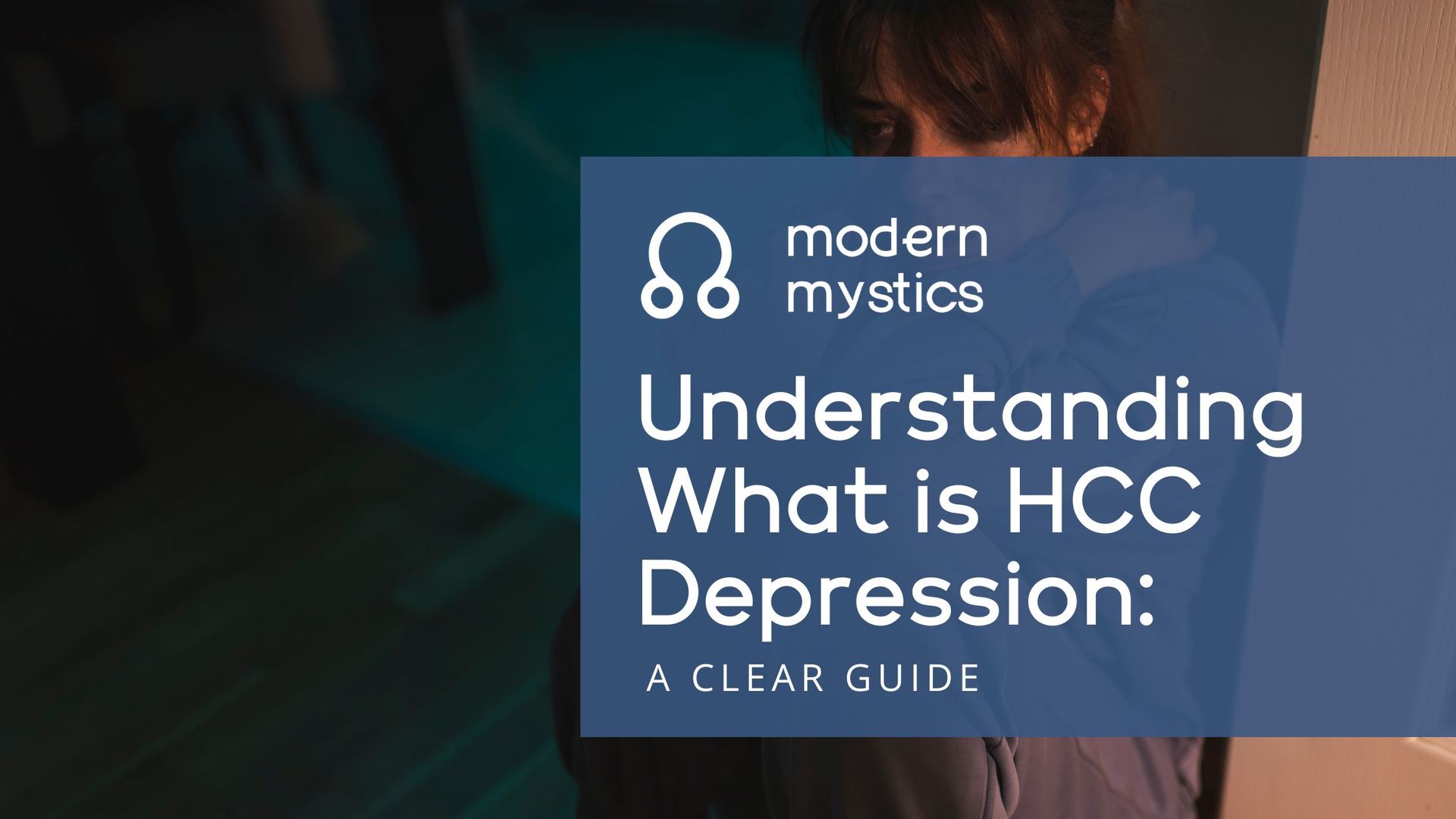Understanding What is HCC Depression: A Clear Guide
When we think about liver cancer, feelings of fear and uncertainty often surface. It's a serious diagnosis with a complex treatment landscape. But what happens when these challenges intersect with another very real and difficult experience: depression? That's what HCC depression is, and in this post, you'll learn about its implications for those facing liver cancer.
"HCC Depression" is a term that can refer to the coding and risk adjustment considerations for depressive disorders within the Hierarchical Condition Category (HCC) model, rather than solely indicating depression associated with hepatocellular carcinoma (also abbreviated as HCC). Developed by Medicare and used in Medicare Advantage (MA) programs, the HCC model classifies patients based on chronic conditions to predict healthcare costs, support effective patient care, and adjust payment models. In this context, HCC depression denotes major depressive disorder (MDD) and related depressive conditions identified through diagnostic coding, playing a vital role in the broader healthcare landscape for cost prediction, care planning, and quality outcomes.
Table Of Contents:
- Understanding HCC and Depression in the Healthcare Context
- How HCC Coding and Risk Adjustment Affect Depression Classification
- Common Risk Factors and Conditions Associated with HCC Depression
- The Weight of Dual Diagnoses
- HCC Depression's Impact on the HCC Patient Journey
- Conclusion
Understanding HCC and Depression in the Healthcare Context
The HCC model categorizes various chronic health conditions—such as heart failure, rheumatoid arthritis, and depression—to assess risk and predict patient care costs. Medicare Advantage plans and Accountable Care Organizations (ACOs) rely on these risk adjustment models to determine the severity and impact of a patient's health status. HCC coding for depression ensures that conditions like major depressive disorder are accurately recorded, supporting optimal patient care and fair payment models based on patient needs.
For example, in this system, major depressive disorder (MDD) is assigned a specific HCC code based on diagnosis codes in medical records. This code represents the risk level associated with MDD and is factored into the Risk Adjustment Factor (RAF) score, which influences reimbursement rates and budget allocation in care organizations.
How HCC Coding and Risk Adjustment Affect Depression Classification
The process of assigning HCC codes for depression requires a detailed look into diagnostic criteria. Depressive disorders are classified according to diagnosis codes found in a patient’s health record, which are then translated into condition categories under HCC. Major depressive disorder falls into a specific HCC category that affects the overall RAF score, adjusting for the patient's health risks.
The risk adjustment model accounts for these mental health conditions using a hierarchical structure, with certain health codes ranking higher based on disease severity and associated costs. For example, a diagnosis of major depressive disorder could be grouped with other chronic conditions that exacerbate the health status, such as congestive heart failure or liver cirrhosis. By adjusting for the condition’s intensity, the HCC model creates a tailored risk profile, which health organizations use to allocate care resources effectively and predict patient care costs accurately.
Common Risk Factors and Conditions Associated with HCC Depression
The HCC model also evaluates conditions that often co-occur with depression, such as:
- Heart failure and congestive heart failure: Depression is common in patients with cardiovascular conditions, as these diseases can compound emotional and physical stress.
- Liver cirrhosis and hepatocellular carcinoma: Liver-related conditions are often associated with depressive symptoms, as patients may face significant lifestyle limitations.
- Obesity and morbid obesity: Obesity can exacerbate depressive symptoms due to societal pressures, body image issues, and comorbid physical health problems.
- Kidney disease: Chronic kidney disease often coexists with depressive disorders due to the ongoing challenges of managing a lifelong condition.
These co-occurring conditions are factored into the RAF score to ensure accurate risk assessment, helping predict costs and providing a comprehensive understanding of patient needs in primary and specialized care settings.
The Weight of Dual Diagnoses

Why is HCC depression so prevalent? Consider that a person is grappling with a serious, potentially life-threatening disease. This comes with physical symptoms, often pain, and the emotional toll of facing one's mortality. Treatment for HCC can be intense, involving surgery, chemotherapy, and other interventions, which all bring side effects that can worsen fatigue and emotional distress.
Plus, there's the financial burden of treatment, impacting many and adding yet another layer of pressure. It's important to recognize that depression in the context of HCC is not a sign of weakness. It's a natural human response to incredibly challenging circumstances. Acknowledging this reality is the first step towards providing proper support and care.
HCC Depression's Impact on the HCC Patient Journey
Research suggests that untreated depression in the context of HCC can worsen outcomes. Studies show that those experiencing depression might be less adherent to treatment regimens. When you're battling fatigue, lack of motivation, and emotional turmoil, sticking to a demanding treatment plan can seem impossible.
Sadly, depression might also influence how the body responds to treatment, affecting overall prognosis. Additionally, there's a documented link between HCC depression and decreased survival rates among HCC patients [14]. This isn't meant to cause alarm but rather to underscore the crucial need for open conversations and a multi-pronged approach to care. The hierarchical condition category coding of HCC alongside a major depressive disorder diagnosis code can have significant implications for patient care.
Quality Outcomes and Patient Care: Why Accurate Coding Matters
The accuracy of HCC coding for depression impacts not only reimbursement rates but also the quality of care patients receive. By including depressive disorders in HCC categories, healthcare providers can more accurately track quality outcomes and develop treatment plans that meet each patient’s mental health and physical health needs. Accurate coding also allows healthcare providers to offer tailored treatments that address the full spectrum of health conditions affecting patient well-being.
For healthcare providers, correctly identifying and coding depression under HCC categories means better patient care, as conditions like depression often require consistent management, resources, and follow-up. This careful documentation affects the overall treatment and helps healthcare organizations predict and allocate resources efficiently.
Some lifestyle modifications that can be beneficial include:
- Mindfulness
- Exercise
- Art therapy
The Role of Statistical Analysis in HCC Depression Research
To further refine the HCC model and ensure accurate risk adjustments, researchers use systematic reviews and study designs that incorporate statistical analysis. These analyses allow researchers to assess the relationship between HCC depression coding and actual patient outcomes, enabling adjustments in coding guidelines and model-based changes to better predict costs and support high-quality patient care. Statistical analysis has also helped highlight the importance of including depression in risk adjustment models, as it significantly affects healthcare costs and outcomes.
Conclusion
What is HCC depression? It is a serious topic that deserves greater attention. By acknowledging the relationship between HCC and depression, healthcare professionals, and those who love and care for them can help ensure patients receive the support they need to navigate the physical and emotional challenges of their diagnosis.
Through compassionate, holistic care and continued research, medical professionals can improve the lives of those living with HCC depression and work towards a future where individuals with HCC are fully supported, both physically and mentally, as they face this disease.



